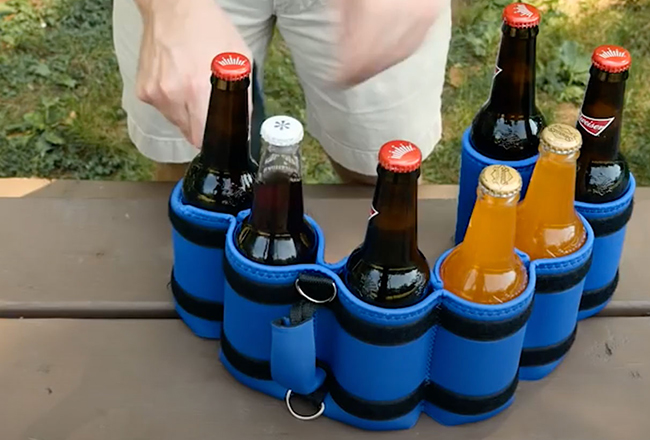An Eastchester man who has filed for bankruptcy protection has been accused of defrauding a Minnesota business by not delivering $203,000 in Stubby Strips.
“Korosh Delnawaz cannot use bankruptcy to escape liability for fraud,” Jon Tollefson of Bloomington, Minnesota, states in a March 8 adversary complaint filed in U.S. Bankruptcy Court, White Plains.
Delnawaz did not immediately respond to a request for comment submitted to his bankruptcy attorney, Michelle Ferlito, of Jericho, Long Island.
He depicts himself as a business development consultant, according to his LinkedIn profile, “known for my entrepreneurial passion.”

One of his enterprises was Stubby Strip LLC, purveyor of insulated wraps for keeping six packs of beer cool and making them easy to tote.
In 2015, Delnawaz allegedly claimed he held intellectual property rights ”“ patents, copyrights and trademarks ”“ for the Stubby Strip.
Tollefson”™s company paid $203,000 for a license to use the intellectual property, exclusive right to sell the product in North America, and a shipment of Stubby Strips.
Tollefson says he flew Delnawaz to a trade show to promote Stubby Strip, met with retailers and spent hundreds of hours developing the brand.
But the Stubby Strips were never delivered, he claims, and Delnawaz”™s intellectual property rights were “illusory.”
“Delnawaz had never intended to honor the agreement,” the complaint states, and had in fact converted the funds ”¦ to his own personal use.”
Tollefson sued Delnawaz and Stubby Strip in a Minnesota court. The dispute was mediated, and Delnawaz agreed in 2016 to pay Tollefson”™s company $215,000.
In 2019, with the debt still unpaid, the Minnesota court awarded Tollefson”™s company a $211,059 default judgment.
This past December, Delnawaz filed for Chapter 7 liquidation in U.S. Bankruptcy Court, White Plains. He declared $3,489 in assets and $441,657 in liabilities consisting mostly of the Tollefson judgment and business loans.
Tollefson”™s attorney, Carl E. Christensen of Minneapolis, argues that Delnawaz may not use bankruptcy protection to dismiss the court judgment because the debt was incurred by fraud and malicious injury.





















